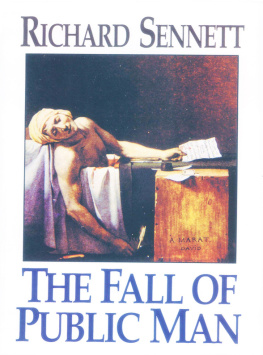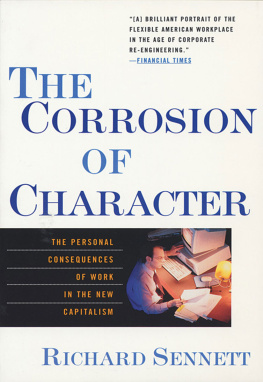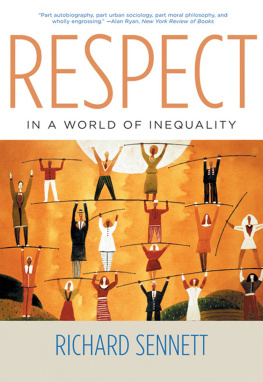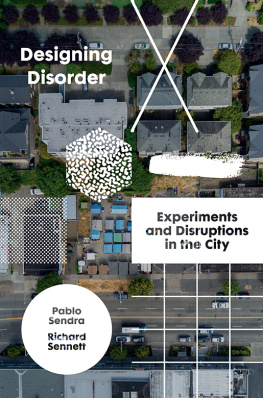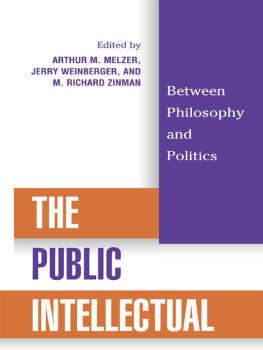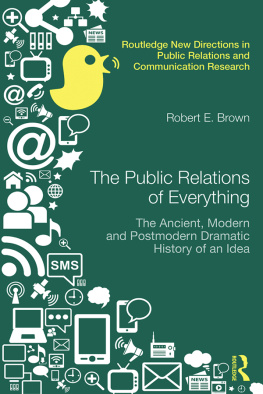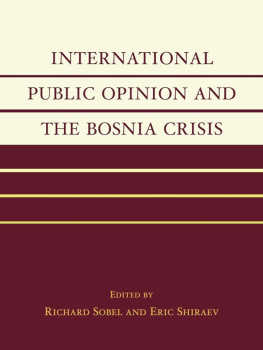Richard Sennett - The Fall of Public Man
Here you can read online Richard Sennett - The Fall of Public Man full text of the book (entire story) in english for free. Download pdf and epub, get meaning, cover and reviews about this ebook. year: 1996, publisher: W. W. Norton & Company, genre: Religion. Description of the work, (preface) as well as reviews are available. Best literature library LitArk.com created for fans of good reading and offers a wide selection of genres:
Romance novel
Science fiction
Adventure
Detective
Science
History
Home and family
Prose
Art
Politics
Computer
Non-fiction
Religion
Business
Children
Humor
Choose a favorite category and find really read worthwhile books. Enjoy immersion in the world of imagination, feel the emotions of the characters or learn something new for yourself, make an fascinating discovery.
- Book:The Fall of Public Man
- Author:
- Publisher:W. W. Norton & Company
- Genre:
- Year:1996
- Rating:3 / 5
- Favourites:Add to favourites
- Your mark:
- 60
- 1
- 2
- 3
- 4
- 5
The Fall of Public Man: summary, description and annotation
We offer to read an annotation, description, summary or preface (depends on what the author of the book "The Fall of Public Man" wrote himself). If you haven't found the necessary information about the book — write in the comments, we will try to find it.
A fascinating evocation of changing styles of personal and public expression. . . .Robert Lekachman, Saturday Review
The Fall of Public Man — read online for free the complete book (whole text) full work
Below is the text of the book, divided by pages. System saving the place of the last page read, allows you to conveniently read the book "The Fall of Public Man" online for free, without having to search again every time where you left off. Put a bookmark, and you can go to the page where you finished reading at any time.
Font size:
Interval:
Bookmark:
Also by
RICHARD SENNETT
The Uses of Disorder:
Personal Identity and City Life
Families Against the City:
Middle-Class Homes of Industrial Chicago
The Conscience of the Eye:
The Design and Social Life of Cities
Flesh and Stone:
The Body and the City in Western Civilization
Palais-Royal:
A Novel
The Corrosion of Character:
The Personal Consequences of Work in the New Capitalism
Co-author of
Nineteenth-Century Cities:
Essays in the New Urban History
Editor of
Classic Essays on the Culture of Cities
OF PUBLIC MAN

by
RICHARD SENNETT

OF PUBLIC MAN
Copyright 1974, 1976 by Richard Sennett
All rights reserved under International and Pan-American Copyright Conventions.
First published as a Norton paperback 1992 by arrangement with Alfred A. Knopf, Inc.
Portions of first appeared in the Afterword to Forest Hills Diary by Mario Matthew Cuomo (New York: Random House), 1975.
Library of Congress Cataloging-in-Publication Data
eISBN 9780393346510
Sennett, Richard, 1943
The fall of public man / by Richard Sennett.
p. cm.
Originally published: New York: Knopf, 1977.
Includes bibliographical references and index.
1. Social history. 2. Community life. 3. Social interaction.
4. Manners and customs. 5. Alienation (Social psychology).
I. Title.
[HN13.S45 1992]
306.09dc20 92-13145
CIP
W. W. Norton & Company, Inc.
500 Fifth Avenue, New York, N.Y. 10110
www.wwnorton.com
W. W. Norton & Company Ltd.
Castle House, 75/76 Wells Street, London WIT 3QT
11 12 13 14 15 16 17 18 19 20
for
c.r.h.
Each person, withdrawn into himself, behaves as though he is a stranger to the destiny of all the others. His children and his good friends constitute for him the whole of the human species. As for his transactions with his fellow citizens, he may mix among them, but he sees them not; he touches them, but does not feel them; he exists only in himself and for himself alone. And if on these terms there remains in his mind a sense of family, there no longer remains a sense of society.
TOCQUEVILLE
I wish to thank Clifford Curzon and Murray Perahia for helping me first define the purpose of this book. During the course of writing it, I was helped by discussions with Peter Brooks, Clifford Geertz, Richard Gilman, Caroline Rand Herron, Anne Hollander, Herbert Menzel, Orest Ranum, Carl Schorske, Richard Trexler, and Lionel Trilling. I want to thank Ben Barber, Juan Corradi, Marion Knox, Leo Marx, and David Riesman for their comments on the manuscript. I owe a special debt of thanks to Davis Herron, who gave me the benefit of his close reading of the text.
Research for this book was conducted with the assistance of Marcia Bystryn, Bernard McGrane, Mark Salmon, and Christina Spellman. I should particularly like to thank Marcia Bystryn for her very patient and competent work.
Finally, I should like to thank Robert Gottlieb and Angus Cameron for editorial guidance. Bobbie Bristol guided the book through production, and Jack Lynch helped me refine the language of the text.
I wish to thank librarians and curators for assistance at the libraries of the Institute for Advanced Study, the Lincoln Center for the Performing Arts, the Metropolitan Museum of New York, Harvard University, the Bibliothque Nationale, Cambridge University, and New York University. Financial support for the research and writing of this book came through the generous assistance of the Institute for Advanced Study, the John Simon Guggenheim Foundation, and the Ford Foundation. The manuscript was typed by the staff of the Center for Policy Research, and I wish to thank them for their collective efficiency and good humor.


Modern times are often compared to the years the Roman Empire went into decline: Just as moral rottenness is supposed to have sapped Romes power to rule the West, it is said to have sapped the modern Wests power to rule the globe. For all the silliness of this notion, it contains an element of truth. There is a rough parallel between the crisis of Roman society after the death of Augustus and present-day life; it concerns the balance between public and private life.
As the Augustan Age faded, Romans began to treat their public lives as a matter of formal obligation. The public ceremonies, the military necessities of imperialism, the ritual contacts with other Romans outside the family circle, all became dutiesduties in which the Roman participated more and more in a passive spirit, conforming to the rules of the res publica, but investing less and less passion in his acts of conformity. As the Romans public life became bloodless, he sought in private a new focus for his emotional energies, a new principle of commitment and belief. This private commitment was mystic, concerned with escaping the world at large and the formalities of the res publica as part of that world. This commitment was to various Near Eastern sects, of which Christianity gradually became dominant; eventually Christianity ceased to be a spiritual commitment practiced in secret, burst into the world, and became itself a new principle of public order.
Today, public life has also become a matter of formal obligation. Most citizens approach their dealings with the state in a spirit of resigned acquiescence, but this public enervation is in its scope much broader than political affairs. Manners and ritual interchanges with strangers are looked on as at best formal and dry, at worst as phony. The stranger himself is a threatening figure, and few people can take great pleasure in that world of strangers, the cosmopolitan city. A res publica stands in general for those bonds of association and mutual commitment which exist between people who are not joined together by ties of family or intimate association; it is the bond of a crowd, of a people, of a polity, rather than the bonds of family or friends. As in Roman times, participation in the res publica today is most often a matter of going along, and the forums for this public life, like the city, are in a state of decay.
The difference between the Roman past and the modern present lies in the alternative, in what privacy means. The Roman in private sought another principle to set against the public, a principle based on religious transcendence of the world. In private we seek out not a principle but a reflection, that of what our psyches are, what is authentic in our feelings. We have tried to make the fact of being in private, alone with ourselves and with family and intimate friends, an end in itself.
Modern ideas about the psychology of this private life are confused. Few people today would claim that their psychic life arises by spontaneous generation, independent of social conditions and environmental influences. Nevertheless, the psyche is treated as though it has an inner life of its own. This psychic life is seen as so precious and so delicate that it will wither if exposed to the harsh realities of the social world, and will flower only to the extent that it is protected and isolated. Each persons self has become his principal burden; to know oneself has become an end, instead of a means through which one knows the world. And precisely because we are so self-absorbed, it is extremely difficult for us to arrive at a private principle, to give any clear account to ourselves or to others of what our personalities are. The reason is that, the more privatized the psyche, the less it is stimulated, and the more difficult it is for us to feel or to express feeling.
Next pageFont size:
Interval:
Bookmark:
Similar books «The Fall of Public Man»
Look at similar books to The Fall of Public Man. We have selected literature similar in name and meaning in the hope of providing readers with more options to find new, interesting, not yet read works.
Discussion, reviews of the book The Fall of Public Man and just readers' own opinions. Leave your comments, write what you think about the work, its meaning or the main characters. Specify what exactly you liked and what you didn't like, and why you think so.

